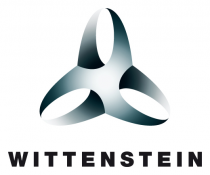Electric Utility Customers Largely in the Dark on Climate Sustainability Initiatives, J.D. Power Finds
Last year, American states and utilities made more ambitious clean energy commitments than ever before, with leaders such as New York and California committing to hit 100% renewable energy targets by 2050.1 Despite this significant progress, U.S. electric utility customers currently have very low levels of awareness for the climate sustainability initiatives of their local utilities, according to the J.D. Power 2020 Sustainability Index—Climate, released today.
With this new index focused on ESG (environmental, social and governance), J.D. Power evaluates electric utility customer awareness, support, engagement and advocacy for their local utility’s climate sustainability programs and goals. The index applies to the 35 largest U.S. electric utility companies and cities, each serving 500,000 or more residential customers.
“Consumer awareness and support for the climate sustainability initiatives of their local electric utilities is low,” said Andrew Heath, senior director of utilities intelligence at J.D. Power. “Utilities need to address awareness if they hope to achieve the clean energy goals they’ve put in place for the next few decades. These efforts are going to cost money and will require support from rate payers and citizens. Without the support of their customers and other stakeholders, utilities may struggle to achieve their goals.”
Following are some key findings of the 2020 index:
- Consumer awareness and engagement with utility climate initiatives very low: The overall sustainability scores for electric utilities evaluated in the study, which are based on consumer awareness, support, engagement and advocacy for their local utility’s climate initiatives, range from a high of 32 to a low of 19 on a 100-point scale.
- Most concerned cities: Utility customers in New York City (Con Edison), Los Angeles (Los Angeles Department of Water & Power) and Portland, Ore., (Portland General Electric) have the highest levels of concern regarding climate change.
- Climate change skeptics: Wyoming and Alabama have the largest percentages of climate change skeptics, with 15% and 11% of respondents, respectively, responding that “there is no climate change.”
- Business customers more engaged in sustainability than residential customers: On average, business utility customers are more aware and supportive of their local utility’s climate sustainability initiatives than residential customers.
- Highest-scoring utilities: NextEra Energy and Sacramento Municipal Utility District have the highest scores in 2020 with a score of 32 (on a 100-point scale).
The index is based on responses from more than 34,000 business and residential electric utility customers and was fielded from January through May 2020. Following is the full list of electric utility companies and cities that are evaluated, along with their index scores:
Utility |
Score |
||
|
|||
NextEra Energy |
32 |
||
Sacramento Municipal Utility District |
32 |
||
Con Edison |
29 |
||
CPS Energy |
29 |
||
DTE Energy |
29 |
||
Edison International |
29 |
||
Portland General Electric |
29 |
||
Puget Energy |
29 |
||
Southern Company |
29 |
||
Xcel Energy |
29 |
||
L. A. Dept. of Water & Power |
28 |
||
Sempra Energy |
28 |
||
CMS Energy |
27 |
||
Duke Energy |
27 |
||
Emera |
27 |
||
Pacific Gas and Electric |
27 |
||
Pinnacle West |
27 |
||
Salt River Project |
27 |
||
Berkshire Hathaway Energy |
26 |
||
Entergy |
26 |
||
Exelon |
26 |
||
Ameren |
25 |
||
Dominion |
25 |
||
OGE Energy Corp. |
25 |
||
PSEG |
25 |
||
National Grid |
24 |
||
PPL Corporation |
24 |
||
Eversource |
23 |
||
WEC Energy Group |
23 |
||
AEP |
22 |
||
Evergy |
22 |
||
Alliant Energy |
21 |
||
Duquesne Light |
20 |
||
FirstEnergy |
20 |
||
Avangrid |
19 |
For more information about the J.D. Power Sustainability Index—Climate, visit https://www.jdpower.com/business/utilities/jd-power-climate-leadership-program.
To view the online press release, please visit http://www.jdpower.com/pr-id/2020061.
J.D. Power is a global leader in consumer insights, advisory services and data and analytics. These capabilities enable J.D. Power to help its clients drive customer satisfaction, growth and profitability. Established in 1968, J.D. Power has offices serving North America, Asia Pacific and Europe.
About J.D. Power and Advertising/Promotional Rules: www.jdpower.com/business/about-us/press-release-info
1 Source: 2020 Sustainable Energy in America Factbook, The Business Council for Sustainable Energy
View source version on businesswire.com: https://www.businesswire.com/news/home/20200715005294/en/




